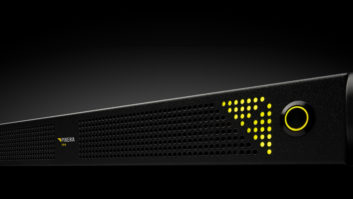
TJ Adams, DSP install manager at QSC, answers four questions on audio networking.
How well do you think the capabilities (and limitations) of the current array of networking protocols are understood by the average AV integrator? (Do you have any evidence, anecdotal or otherwise, to back this up?)
I see evidence that integrators are starting to become stronger in regards to network technology. By far the top three protocols that are known and understood are 1. CobraNet 2. Dante and a distant 3. AVB. The evidence is in the number of engineers and field techs now sporting CCNA on their title or are at least pursuing certifications that are from the IT trade groups like CompTIA, not just from InfoComm.
Do you think there will be an eventual ‘winner’ in the battle of networking protocols, or do you think that different approaches will always need to be taken in different vertical sectors?
I do not think we will see a real winner in the battle until the entire AV industry finally “Gets the IT buyer” and what they care about. We are all fighting the wrong war in my view. The reality we all take for granted in our personal lives when we are not battling our AV competitors is that we don’t care about what the packets look like when we stream audio on our phone or send an email from an iOS device to an Android device. It is this kind of transparency that is needed in our industry and what is offered in theory by the AES67 interoperability standard that was just ratified with AES. We can all keep our specific protocols for the needs of our specific application environment, but yet not lock our collective customers into only one ecosystem. When we see this transformation, I believe we will have finally seen the convergence of IT and AV we have been talking about for over a decade.
Do you believe that open systems are always to be preferred over proprietary ones, or is there something to be said for proprietary solutions designed for specific needs?
Open systems is somewhat of a misnomer. The reality is that it is always a game of tradeoffs. I think the real question should be “what side of the network transport should be proprietary? The end point technology and protocol or the switch fabric?” If you select a network transport protocol that is a standard it does not necessarily mean it is going to be adopted by the network switch vendors like Cisco and HP. There has to be a large and broad business need to adopt a standard as well for these switch vendors. AVB has shown the downsides of this scenario. Many marketing dollars have been spent by various AV manufacturers and the AVNU trade association on how AVB is an open standard and therefore somehow “better”. However, very few mainstream enterprise switch vendors support it because the need is tiny in comparison to their core business of transporting other technologies across their switch gear. In contrast to this scenario, take a look at Dante and Q-LAN. Both are technically proprietary to their respective developers. However, they are both designed to work natively over off the shelf current and future switch technology. So the tradeoff is obvious I think… you can have a standard and take that high ground, but it may just be better to leverage proprietary technology at the end points which happen to already be necessarily proprietary to that vendor.
How far away do you think we are from total multi-vendor plug-and-play interoperability?
It depends on how many manufacturers are willing to give up on trying to fight a losing war of differentiating their products based on the network protocol or worse, attempting to deny interoperability via their protocols to lock up a market and retain market share. These resemble the old network wars of the early 90’s where one OS vendor did not want their customer to be able to interoperate with a competitor’s OS. My belief is that eventually we will relearn this lesson of the IT world just several decades behind.







